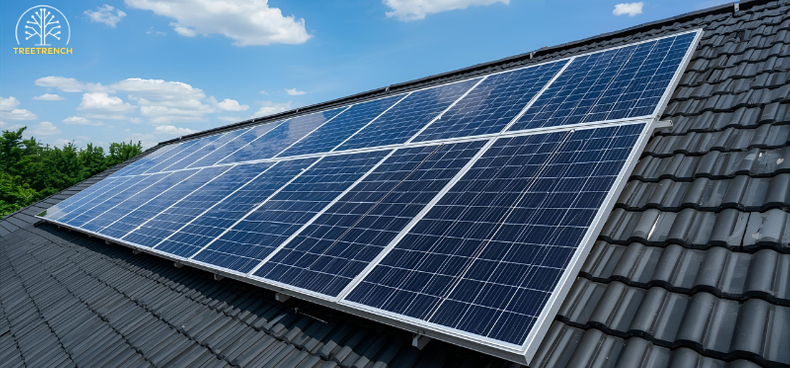Solar panels explained: How many do you need and how much energy will they produce?

Written by Ahmed Abdalla from Treetrench
As more households and businesses look to save on energy bills and reduce their carbon emissions, solar power is becoming an increasingly attractive option to do just that.
But one of the most common questions is: how many solar panels do I actually need?
The answer depends on two main factors: your energy consumption and the amount of sunlight available.
A typical solar panel in the UK is rated between 300–645 watts so you can expect to generate roughly 300–645 Wh daily per panel in winter months, or 1.5–3.25 kWh daily per panel in summer.
In this estimate we assume, around 1 hour of peak sunlight shining directly on our panel in winter and 5 hours in summer. Peak sunlight is the period when sunlight is strong enough for the panels to operate at full capacity
Because the UK experiences long daylight hours in summer (up to 17 hours) and shorter days in winter (around 8 hours), our previous assumption naturally accounts for cloudy and rainy conditions.
While it isn’t perfect for day-to-day calculations, it provides a realistic estimate for annual generation.
While panels may still generate some electricity outside peak hours, we use this simplified approach to account for days with low sunlight. It is also important that panels are mounted facing south with no shading from trees or buildings to ensure maximum amount of sunlight shining on them.
You can explore this in more detail in our guide: How much electricity do solar panels generate?
For example, if your household uses about 5 kWh per day, a 10 kWh battery combined with 10 solar panels rated at 600 W each can meet your energy needs in both summer and winter months.
In summer, you may even export excess energy to the grid under the Smart Export Guarantee. Please note that this example assumes ideal conditions and actual generation may vary due to weather, shading, and system losses.
For smaller applications, such as sheds or outbuildings, energy requirements are much lower. A compact off-grid solar and battery system can be ideal in these cases.
Panels provide power during the day, while the battery ensures you can still run tools, lighting, or electronics at night or on cloudy days. These standalone systems are often quicker to install and face fewer compliance requirements.
At TreeTrench, we specialise in off-grid solar and battery systems for small to medium-sized needs.
Whether it’s a shed, outbuilding, farm, boat, or van, our solutions are reliable, safe, and built with trusted components from leading suppliers like Victron and Renogy.
